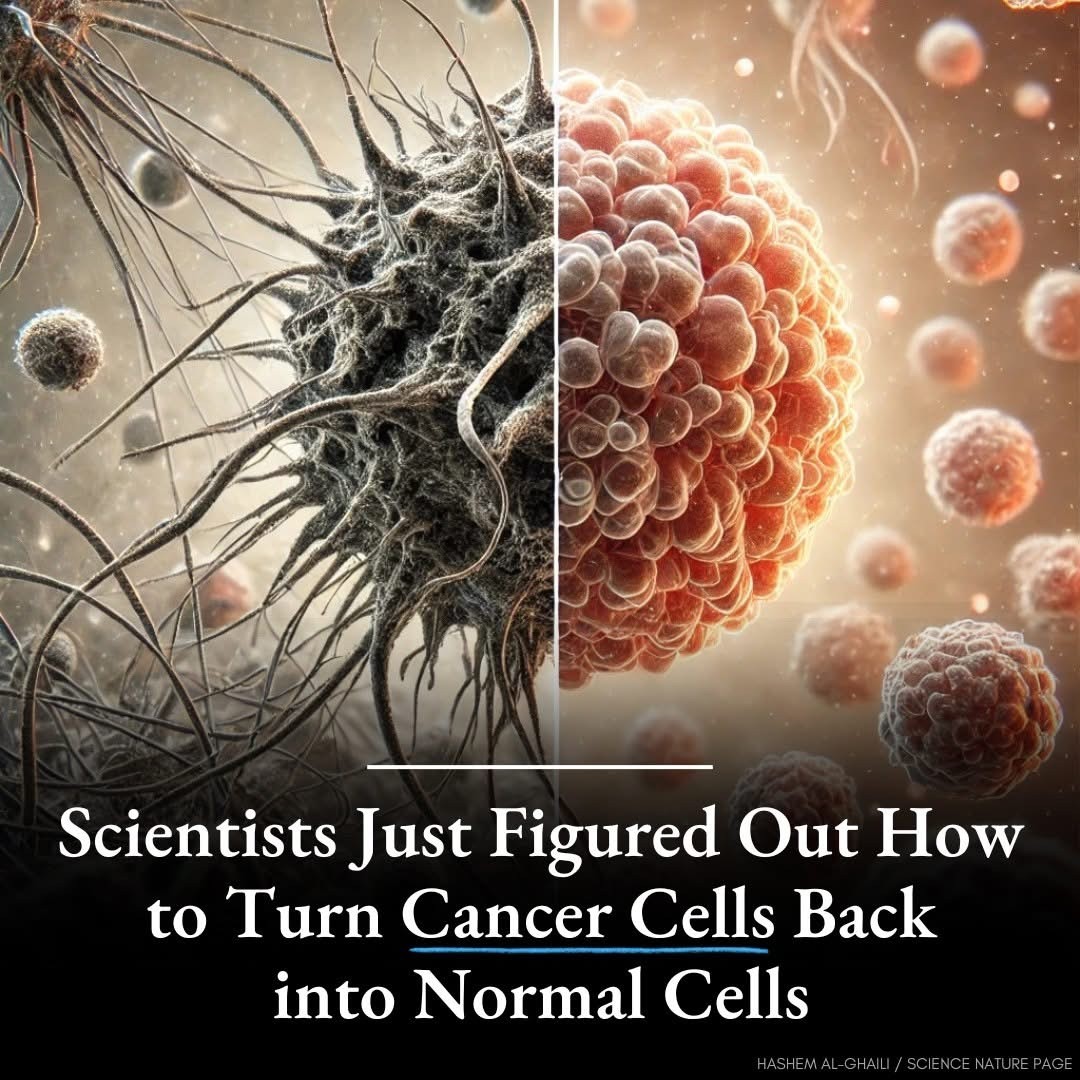A new breakthrough treatment flips cancer cells back into normal cells.
Researchers at the Korea Advanced Institute of Science and Technology (KAIST) have discovered a way to transform cancer cells into healthy ones by targeting "master regulators" in the gene network of colon cancer cells.
They were able to reverse the cancerous state without destroying cellular material.
This approach avoids the common side effects of traditional treatments, which often damage healthy cells alongside cancer cells. The key regulators — MYB, HDAC2, and FOXA2 — were suppressed to initiate the reversion process, successfully restoring the cells to a normal-like state.
The innovative technique was demonstrated through digital modeling, molecular experiments, and tests on mice, marking a revolutionary step in cancer therapy.
Beyond colon cancer, the team applied their model to identify potential master regulators in mouse brain cells, opening new possibilities for tackling brain cancer. "This research introduces the novel concept of reversible cancer therapy," said lead researcher Professor Kwang-Hyun Cho.
If widely applied, this method could reshape cancer treatment, providing a more targeted, less destructive alternative to conventional approaches.
Learn more: https://advanced.onlinelib...
Researchers at the Korea Advanced Institute of Science and Technology (KAIST) have discovered a way to transform cancer cells into healthy ones by targeting "master regulators" in the gene network of colon cancer cells.
They were able to reverse the cancerous state without destroying cellular material.
This approach avoids the common side effects of traditional treatments, which often damage healthy cells alongside cancer cells. The key regulators — MYB, HDAC2, and FOXA2 — were suppressed to initiate the reversion process, successfully restoring the cells to a normal-like state.
The innovative technique was demonstrated through digital modeling, molecular experiments, and tests on mice, marking a revolutionary step in cancer therapy.
Beyond colon cancer, the team applied their model to identify potential master regulators in mouse brain cells, opening new possibilities for tackling brain cancer. "This research introduces the novel concept of reversible cancer therapy," said lead researcher Professor Kwang-Hyun Cho.
If widely applied, this method could reshape cancer treatment, providing a more targeted, less destructive alternative to conventional approaches.
Learn more: https://advanced.onlinelib...
2 months ago

